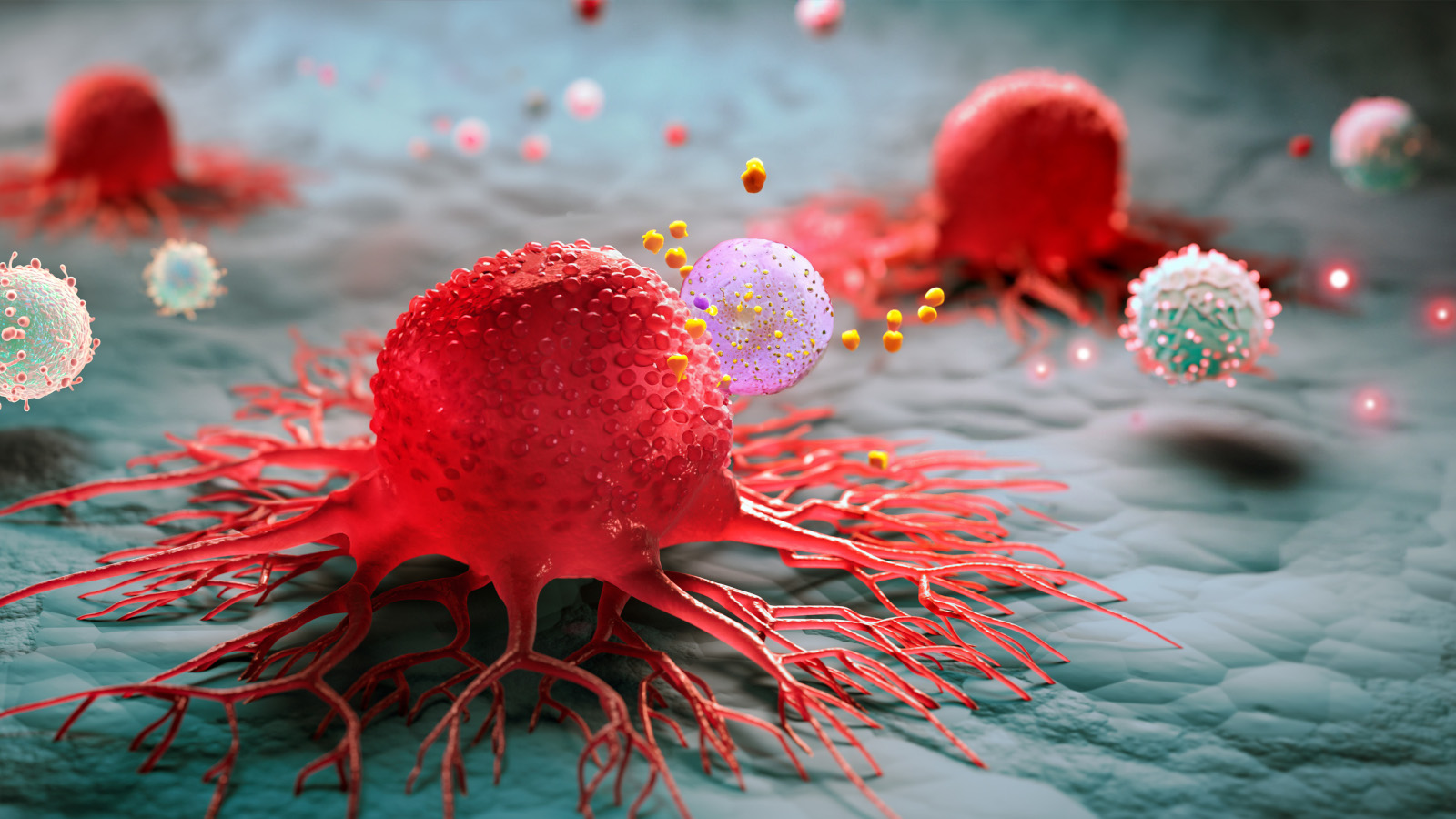
Not long ago, a cancer diagnosis felt like a door closing. Harsh chemotherapy, endless hospital visits, and uncertain outcomes made it a word people whispered, not spoke. But something changed. A new kind of treatment quietly emerged, one that didn’t just attack the disease but trained the body to fight it on its own terms. It’s called cancer immunotherapy, and it’s changing everything.
This guide, written by the editorial team at www.turkishdoctor.ae, explores the most recent breakthroughs in cancer immunotherapy — the science, the promise, and the questions that still need answers. We’ll walk through the different types of therapies, who might benefit from them, and how they’re reshaping the future of oncology. Whether you’re a patient, a caregiver, or simply curious, there’s something here for you.
What exactly is cancer immunotherapy?
Let’s start with the basics. Immunotherapy is a type of cancer treatment that uses the body’s own immune system to fight cancer. Instead of killing cancer cells directly (like chemotherapy), it helps the immune system recognize and destroy them.
The immune system is designed to protect you from disease. But cancer cells can hide. They trick your body into thinking they’re normal. Immunotherapy disrupts this trick. It shines a spotlight on the cancer, making it visible again to immune cells like T-cells.
There are different forms of immunotherapy. Some stimulate the entire immune system. Others train it to recognize a specific type of cancer. The key difference from traditional treatments is personalization. Immunotherapy often involves tailoring treatment to the patient’s unique cancer profile — something called precision medicine.
The latest therapies leading the way
One of the most exciting areas in cancer immunotherapy today is immune checkpoint inhibitors. These drugs block proteins that prevent the immune system from attacking cancer cells. Think of them as releasing the brakes on your immune system. Drugs like pembrolizumab (Keytruda) and nivolumab (Opdivo) are already approved for multiple types of cancer, including lung, melanoma, and some colorectal cancers.
Then there’s CAR T-cell therapy — a highly specialized form of treatment where a patient’s own T-cells are extracted, genetically modified in a lab to better fight cancer, and then re-injected into the body. CAR T-cell therapy has shown remarkable success in blood cancers like leukemia and lymphoma. However, it’s still being explored for solid tumors like breast and pancreatic cancer.
Another promising avenue is cancer vaccines. Unlike traditional vaccines, these don’t prevent disease — they treat it. Cancer vaccines work by stimulating the immune system to attack cancer cells, often by targeting specific antigens found on tumors. Some are personalized and made from the patient’s own tumor cells.
Finally, oncolytic virus therapy is gaining attention. Scientists are using viruses — engineered to be safe — to infect and kill cancer cells. These viruses also help the immune system spot and attack the tumor. This approach is still early but incredibly promising.
Who can benefit from immunotherapy today?
Not every patient responds to immunotherapy. That’s one of its current challenges. Some cancers are more “immunogenic,” meaning the immune system is more likely to recognize them. Melanoma, lung cancer, and kidney cancer are among those where immunotherapy has made the most impact.
Other types, like pancreatic cancer, have proven more resistant — but research is ongoing. Scientists are studying combinations of immunotherapy with radiation, chemotherapy, and targeted drugs to make treatment more effective.
In the UAE, cancer centers like the Sheikh Shakhbout Medical City and Cleveland Clinic Abu Dhabi are already offering some forms of immunotherapy. According to local statistics, lung cancer remains one of the top cancer types treated with checkpoint inhibitors in the region. The Ministry of Health has also introduced guidelines for precision-based oncology treatment, which includes immunotherapy options in eligible cases.
If you or a loved one is considering immunotherapy, genetic testing and biomarker profiling are often necessary. These help determine whether your cancer expresses markers like PD-L1 — a protein that suggests you may respond well to checkpoint inhibitors.
As the editorial team at www.turkishdoctor.ae, we’ve noticed an increase in patients asking about these options, especially among expats seeking advanced care in Dubai or Abu Dhabi.
What are the side effects and risks?
Immunotherapy isn’t free of side effects. The most common ones are immune-related — inflammation, rashes, fatigue, or flu-like symptoms. More serious reactions include colitis, hepatitis, and pneumonitis, which result from the immune system attacking healthy organs. These side effects are often manageable with steroids, but they require prompt attention.
The good news? Many patients experience fewer side effects compared to traditional chemotherapy. The bad news? Predicting who will respond — and who will suffer adverse effects — remains difficult. This unpredictability is why immunotherapy is often used when other treatments fail or alongside them.
Long-term risks are still being studied. Because the immune system is being manipulated, researchers want to ensure that new autoimmune diseases don’t develop as a result.
The cost of immunotherapy: is it affordable?
There’s no easy way to say it: immunotherapy is expensive. A single dose of a checkpoint inhibitor can cost thousands of dollars. Full treatment cycles often exceed $100,000 USD. In the UAE, many hospitals include immunotherapy in private insurance plans, but not all policies cover it fully. If you’re seeking treatment in Dubai, it’s important to clarify with your provider early on.
That said, the UAE government has shown growing interest in making cancer treatments more accessible. Some programs offer partial subsidies or connect patients to international clinical trials.
Still, cost is a barrier — especially for expats or those without comprehensive health insurance. Some patients opt to travel to other countries, like Turkey or India, where costs may be lower for equivalent therapies.
What’s coming next in cancer immunotherapy?
The future of immunotherapy looks brighter than ever. Researchers are working on combination therapies, pairing checkpoint inhibitors with radiation or chemotherapy to make resistant cancers more responsive. Others are exploring microbiome manipulation — changing the gut bacteria to improve immune response.
Artificial intelligence is also playing a growing role. By analyzing patient data, AI can predict which treatments will work best, personalizing therapy even further.
Another promising area is bispecific T-cell engagers (BiTEs). These drugs link a T-cell to a cancer cell, physically bringing them together so the immune system can kill more effectively. Early trials show promise, especially for blood cancers.
In the UAE, several academic collaborations and biotech investments are helping accelerate these innovations. Dubai Science Park, for example, has partnered with international firms to explore novel cancer treatments, including next-generation immunotherapies.
Is immunotherapy the answer for everyone?
Here’s the honest truth — not yet. Immunotherapy is powerful, but it’s not a cure-all. Some patients respond dramatically. Others don’t respond at all. The science is still evolving, and doctors are learning every day who benefits most.
However, for many people, especially those with hard-to-treat cancers, immunotherapy offers a chance that didn’t exist before. A chance for remission. A chance for more time. And, in some rare cases, a chance for complete recovery.
If you’re exploring treatment options, talk to an oncologist trained in immunotherapy. Ask about genetic testing. Ask about eligibility. Don’t rely on general advice — because this is one area of medicine that depends entirely on the individual.
One thing is clear: the field is moving fast. And that’s a good thing.
This article was written and reviewed by the editorial team at www.turkishdoctor.ae, offering trusted insights for patients and professionals across the UAE healthcare community.

 then "Add to Home Screen"
then "Add to Home Screen"